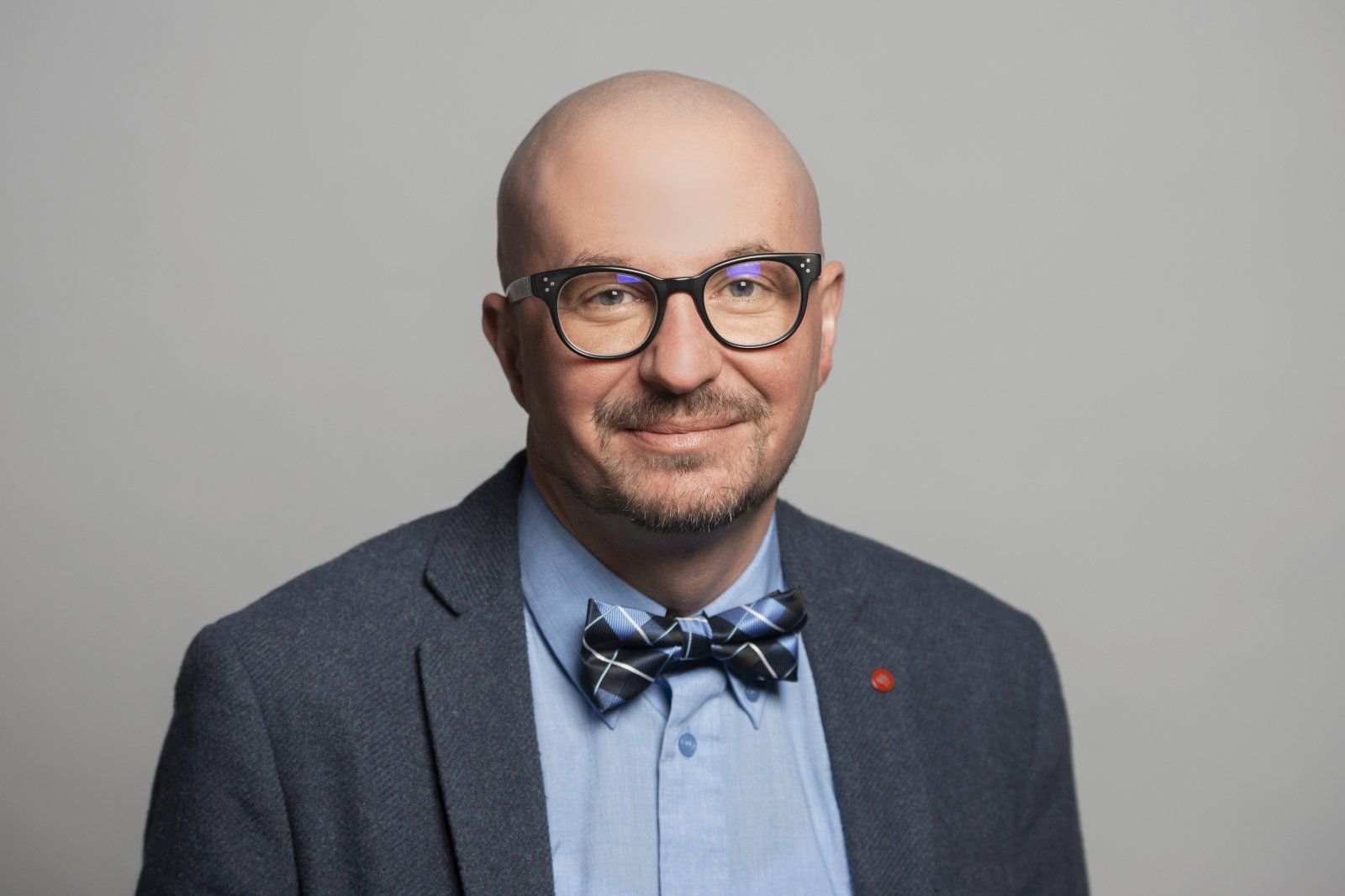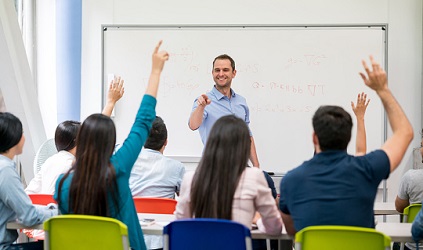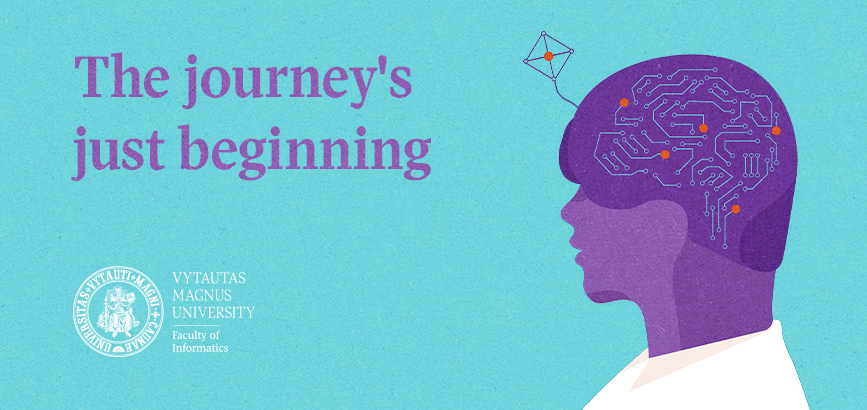Registration for Transform4Europe Course Offer at Bachelor Level
The university network Transform4Europe invites students to choose its track courses for bachelor students which aim to train a new generation of young Europeans who will work together across disciplines and acquire digital, intercultural and entrepreneurial skills. This training enables you to actively shape the necessary transformation processes in Europe.
The Transform4Europe Alliance gives you the opportunity to incorporate a succinct programme – a European-oriented Bachelor Track that leads to a certificate with up to 24 ECTS – into your studies.
All the selected courses are recognised at your university either as part of your main field of study or alongside as additional elective courses.
The Transform for Europe Track consists of common core modules on the topics of:
- Knowledge Entrepreneurship;
- Languages & Intercultural Competencies;
- European History, Politics, Culture, Law, Economy.
Also, you select the track according to your needs and interests from 3 optional challenge-based tracks:
- Digital transformation and smart regions
- Environmental transformation and sustainability
- Societal transformation, community building and inclusion
Once you graduate and complete the Track, you receive a certificate testifying the completion of a Transform4Europe Bachelor Track under the challenge-based track or cluster title.
What are additional benefits for students?
- Exchange ideas with students from other academic disciplines.
- Gaining and developing European competences in a narrower relevant subfield.
- Increase your career opportunities by unique profile development.
- Increase future research and career opportunities in interdisciplinary fields.
- Networking possibilities with students from other European universities.
- Subsidised international mobility.
Spring/summer semester 2023
In the list below please pick the institution at which you would like to attend a course and proceed as advised.
Course start: January 30, 2023
Registration Period: 24th January 23 to February 17, 2023
End of Teaching: May 23, 2023
End of Exams: June 16, Retakes (25/06/23–12/07/23) 2023
For Erasmus students: register now
Course start: April 11, 2023 (Except Knowledge Entrepreneurship)
Registration Period: March 1 to March 23, 2023
End of Teaching: July 21, 2023
End of Exams: approx. end of August 2023
Course start: February 20, 2023
Registration Period: January 23 – February 20, 2023
End of Teaching: June 9, 2023
End of Exams: July 7 (Retakes (21/08/23–03/09/23), 2023
The University of Silesia in Katowice
Course start: February 27, 2023
Registration Period: January 23 to February 15, 2023
End of Teaching: June 25, 2023
End of Exams: June 26 to July 9, 2023 | Retakes (01/09/23 – 24/09/23)
Course start: February 27, 2023
Registration Period: January 24 – February 20, 2023
End of Teaching: Around 26/05/23–01/06/23
End of Exams: tbc
Course start: The spring semester starts from 27th of February 2023 and ends in May 2023
Registration Period: 23rd of January to 26th of February 2023
End of Teaching: In May
End of Exams: In June
Course start: February 1, 2023
Registration Period: January 16 to January 29, 2023
End of Teaching: May 23, 2023
End of Exams: June 13, 2023 | Retakes (15/06/23-19/06/23)
List of modules and registration:
A list of modules and a registration form can be found here.
For more information please contact sd@vdu.lt


A Tool for Hate Speech Detection on the Internet is Developed
As the number of online hate comments increases, artificial intelligence comes to the aid: researchers from Vytautas Magnus University (VMU), together with the Lithuanian Human Rights Center, European Foundation of Human Rights and the Department of National Minorities under the Government of the Republic of Lithuania, developed a tool intended to help automatically detect and remove cases of hate speech, for instance, in the comment sections of news portals. According to one of the project “#Be Hate-Free: Building Hate-Free Communities in Lithuania” developers, Professor Tomas Krilavičius, Dean of the VMU Faculty of Informatics, the development of such a tool is quite challenging: people themselves often find it difficult to recognize hate speech, and artificial intelligence needs to be thoroughly trained to do so.
“While working with social media texts and comments at the university, we noticed a lot of negative things, incitement to hatred on the Internet. However, identifying hate speech is difficult for artificial intelligence: good and effective solutions in this area have not yet been proposed for any language since the definition of hate speech itself requires careful consideration of the context. Moreover, there is no clear legal regulation, and people themselves sometimes disagree on what counts as hate speech and what does not,” says the professor.
He also notes that hate speech is not a comment or insult directed against a specific person, but rather an attack on weaker groups of society, such as national minorities or LGBT communities, and threats against them. “In other words, if you write something mean only about me, it’s not going to count as hate speech. But if certain vulnerable groups are attacked and threatened with violence, then it will count as hate speech,” the researcher explains. According to Krilavičius, the tool for hate speech detection developed by the team of the VMU Faculty of Informatics together with partners uses artificial intelligence and language technologies to assess the likelihood that a particular text is hate speech.
“We used many examples, some of which were marked as hate speech, and some of which were not. Such artificial intelligence solutions learn from various examples and word combinations. Employing more sophisticated methods allows to detect that some word may be used instead of another similar word in a similar context. We reviewed many methods and experimented with a small data set before trying a larger one,” says Professor Krilavičius.
Experiments enabled researchers to create initial hate speech detection model which was then tested to evaluate its performance. The results were promising for further analysis. This led to the development of a tool for hate speech recognition functioning in a real operating environment. In addition, a methodology for hate speech detection was also developed.

Dean of the Faculty of Informatics, professor Tomas Krilavičius
The solution was improved by using sample texts that artificial intelligence later made use of when assessing other cases. The focus was on short texts, such as messages, comments, and posts on social media. The tool is currently prepared for demonstration and application. During the project, experts in artificial intelligence, technology, linguistics, law and other fields were collaborating to develop the solution.
While the tool is expected to be very useful in combating hate speech on the Internet, professor maintains that artificial intelligence in such solutions only assists people and will not replace them for a long time to come, as understanding context and having additional knowledge such as the ability to recognize sarcasm is crucial. Thus, in some cases, it will be necessary for a person to assess possible manifestations of hate speech.

“The tool will indicate in percentage terms the probability that the text analyzed is hate speech. For example, if the probability reaches 70 percent, the comment will be automatically blocked, and if it reaches only 50 percent, it will be published. However, if the probability is between 50 and 70 percent, then the comment will be temporarily blocked and handed over to people for verification,” VMU professor describes the principle of the functioning of the solution.
The main challenges in developing such a tool include not only the fact that there is a lot of debate about the definition of hate speech, but also the fact that there is an insufficient number of examples from which artificial intelligence can learn. “We don’t have enough corpora and annotated examples, and preparing them takes a lot of work. Furthermore, training artificial intelligence models requires a considerable amount of computational resources,” says Professor Krilavičius.
Developing the tool was also based on foreign research and solutions, mainly for English language. However, as can be seen from the comments on Facebook and other platforms, there are currently no solutions that could effectively identify and remove hate speech. The new tool is expected to contribute to progress in this area.
The solution could be particularly useful for news portals that wish to keep their comment sections clean. Taking this into account, testing and use of the tool is currently being discussed with media channels. In addition to developing the solution, researchers are also encouraging discussions on hate speech to help understand the causes and origins of this phenomenon.
Additional consultation time survey

Hey, student!
Have you ever been unable to ask your study questions because a lecturer did not have enough time to answer them? Or maybe you could not stand any longer queuing in front of other students to talk to him / her? Or have you ever faced the lecturer who was busy before, during and after the lectures and who asked you to send all your questions by email even though the question itself required deeper verbal conversation?
If you have answered “yes” to any of the above, maybe you are lacking verbal consultation time. To admit the fact that you need extra time to speak to your lecturer is not a shame, but YOUR right!
For this reason, please fill out a 1-MINUTE short anonymous survey to find out the demand of how much extra verbal consultation time you need in your field of studies. The deadline for this survey is until 8th of April (including). So HURRY UP!
https://docs.google.com/forms/d/14e4Hrm2qxJSXhSLt1Fk7v8R9lam2apdS2Dd7b-ccTjI/edit
Sincerely and have a lovely week!
Justas, the member of Student parliament
VMU Will Hold Graduation Ceremonies
On 21-23 June, Vytautas Magnus University will be holding its graduation ceremonies, bidding farewell to the university’s latest graduates.
On 21 June, diplomas will be awarded to the graduates of the faculties of Economics and Management, Law, and VMU Education Academy (in Kaunas). Additional ceremonies will also be held on the same day for the graduates of VMU Music Academy and Agriculture Academy (faculties of Agricultural Engineering, Agronomy and Forest Sciences and Ecology).
On 22 June, the university will send off alumni of the faculties of Natural Sciences, Informatics, Political Science and Diplomacy, and Catholic Theology. Additional ceremonies will also be held on the same day for the graduates of VMU Agriculture Academy (faculties of Bioeconomy Development and Water and Land Management).
On the final day, ceremonies will be dedicated to the graduates of the faculties of Social Sciences, Arts, the Humanities and VMU Education Academy in Vilnius.
Regrettably, the celebration will not be open to everyone, the way it was before. Taking into account the quarantine situation declared in the entire country due to the threat of the spread of COVID-19, to ensure the safety of the university’s community and their relatives, this year VMU graduate ceremonies will be a bit different than usual.
Vytautas Magnus University’s diplomas will be awarded to the graduates in VMU spaces. However, relatives and friends will be able to congratulate and take pictures with the new alumni outside. They will be able to watch the diploma award ceremony itself live at vdu.lt/graduation on their smartphones and other devices.
Due to the strict requirements of the appropriate disinfection and preparation of academic dress (gowns) for their continued safe use, we will not be able to provide them for all VMU graduates. Therefore, it has been decided that gowns will be worn only by the university’s bachelor’s degree graduates, who will celebrate their first-ever academic graduation ceremony.
We encourage all graduates to bring personal protective equipment. All participants of the graduation ceremony are required to wear medical masks or respirators.
We hope to see you soon at this milestone event, where everyone is filled with joy and a sense of pride after successfully completing an important stage of their lives.
Nevertheless, the graduates who are unable to attend the graduation ceremony will be able to receive their diploma at their faculty (in five workdays after the ceremony), or at the Department of Studies (after this time period ends).
VMU First-year Student Survey Results
The survey of Vytautas Magnus University (VMU) bachelor and integrated studies’ first-year students was conducted in January – February of 2021. The aim was to identify the reasons for their study choices, expectations and opinion about the studies they had chosen as well as the activities they had been involved in.
In the survey, the students indicated the most important sources of information that had been helpful to make the decision where to study, and the main reasons for choosing their studies as well as study expectations at VMU. They also evaluated the usefulness of VMU’s introductory study week and study experience at VMU. Moreover, the first-year students revealed the time allocated for studies, their activities in the free time after studies and participation in the activities of VMU. Finally, the students made suggestions for improving the quality of studies.
593 first-year VMU students took part in the survey – 41.64 percent of bachelor and integrated studies’ first-year students.
We invite you to get acquainted with the summarized results of the survey. Detailed results of the survey are presented to the administration of faculties and academies, study program committees, requesting to share this information with the community.
Erasmus+ Results for the 2021/2022 Academic Year
VMU International Cooperation Department has announced the results of the competition for Erasmus+ studies in Programme countries and Erasmus+ and Bilateral exchange studies in partner countries for the 2021/2022 Academic Year.
You can find more information about Erasmus+ studies here and here.
VMU students evaluated the quality of teaching and learning
In the survey, students of Vytautas Magnus University (VMU) evaluated the quality of teaching and learning in autumn semester of 2020-2021 academic year.
At the end of each semester, students of University’s bachelor, master, integrated and professional studies express their opinion on the quality of teaching and learning in the studied courses. The survey is conducted in an electronic way. Students are provided with separate questionnaires about different teachers of study courses (except for internships, coursework, research and final theses). During the survey, students also evaluate their own activity in the study process – learning and completing tasks.
The percentage of completed questionnaires in the survey of autumn semester of 2020-2021 academic year is 21,20%, a part of the respondents are international students.
We invite you to get acquainted with the summarized results of the survey. Detailed results are available to teachers on the VMU Teachers’ Portal, to administration of faculties and academies as well as to chairpersons of study program committees – in the VMU survey system.
Nominal Scholarships of I. Bielevičius were Awarded to VMU Students
Mr. Ignas Bielevičius, a graduate of Vytautas Magnus University (VMU), Faculty of Informatics, who graduated from his Bachelor’s studies in 2009, has established two nominal, annual scholarships of 500 EUR for students of VMU. The purpose of these scholarships is to financially encourage students for their good study results and active participation in scientific and / or social activities.
Lithuanian and international students of VMU were invited to participate in the competition for nominal scholarships of Mr. Bielevičius. A total of 37 applications were received – 26 of those were Lithuanian students and 11 international students. Decision to whom the scholarships will be awarded was made by the founder of the scholarships himself.
This year’s scholarships were awarded to two VMU students. The first scholarship was awarded to Ms. Milita Songailaitė, a third-year student of the Faculty of Informatics, study programme of Mathematics and its Application. The second scholarship was awarded to Ms. Rasa Katinaitė, a fourth-year student of the Faculty of Social Sciences, study programme of Psychology.
The founder of the scholarship Mr. Ignas Bielevičius revealed that it is was extremely difficult to choose only two awardees and that he was pleasantly surprised by an abundance of active students at VMU.
“I am grateful to VMU for the operational assistance in establishing and implementing the scholarship competition and for all the students for their active participation and efforts. Selecting only two awardees was very difficult task as all the candidates were motivated and worthy of evaluation and praise. I was confirmed once again that students of VMU are talented, caring and have many meaningful plans. They are great example of how, in order to gain knowledge, part of your precious time can be devoted to activities that benefit society. I am thankful to everyone who have participated in this year’s competition”, – Mr. Ignas Bielevičius has shared his thoughts.
The University would like to express its gratitude to the founder of the scholarship for encouraging active and well-educated students and would also like to invite others, who cares about the University and its’ virtues, to contribute to the encouragement of the students, thus investing in the future of the society.
About the founder of the scholarship
The founder of the scholarship, Mr. Ignas Bielevičius who is currently engaged in activities that combine information technology and financial markets, says that he is grateful to VMU for his own discoveries and has no doubt that encouragement of the young people opens the door to even greater opportunities and new achievements.
“It has always seemed to me that the encouragement of the young people is necessary, so I am glad that when I had an opportunity to contribute to it, I did not hesitate and implemented an idea that I had in mind for quite some time. I believe that motivating talented students is a mutually beneficial initiative from many different aspects, the most important of which is the opportunity to contribute to the strengthening of the community. I am grateful to VMU associate professor, Mr. Rūstis Kamuntavičius for helping me in discovering interesting activities and encouraging me to establish these scholarships for students”, – VMU graduate Ignas Bielevičius shared his thoughts.
Catalogue of Internship and Volunteering Offers for VMU students
Are you looking for Internship of Volunteering opportunities?
Right here in front of you is the thirteenth Catalogue of Internship and Volunteering Offers, which was issued by the Career Centre of Vytautas Magnus University. In this catalogue students will find internship and volunteering offers of enterprises, public institutions, non-governmental organizations. We are hoping that each of you will find something useful in the pages that follow!
Catalogue of Internship and Volunteering Offers No. 13 / December, 2020
We hope this catalogue will help you to find a place of internship or you will use an opportunity to test yourself in volunteering, which will be useful in finding your path to labor market!
|
For more information: |
|
| VMU Career Centre | |
| Phone no | +370 37 327 983 |
| career@vdu.lt | |
Application for Accommodation for 2020/2021 Spring Semester
Vytautas Magnus University has opened an application for new incoming international students for accommodation in the dormitories of VMU during 2020/2021 Spring semester.
Terms and conditions for application
In order to reserve a place of residence in one of the dormitories of VMU, all new incoming first-year, full-time, Erasmus+, Bilateral or other international exchange students must follow this procedure:
- learn about our dormitories, its’ location, price for accommodation services, living conditions, etc. (Dormitories);
- create a personal account on the online accommodation system (Accommodation for others). Exchange students may use their Username / Password that they created to apply for exchange studies at VMU;
- login to the online accommodation system (Accommodation for others) with your personal credentials (username and password) and reserve one of the places from the provided list on Accommodation in Student Rooms(Number of places in the dormitories is limited, however, the list is constantly updated, therefore it is recommended to check it regularly).
- Note, that application is open only for students, who have already signed their Learning or Study Agreements (for more information about signing it, please contact International Cooperation department);
- receive an e-mail from VMU with confirmation of your reservation. This e-mail means, that room of your choice will be reserved for you until 31st of January, 2021;
- receive a second e-mail from VMU with instructions on how to sign your online Agreement for Accommodation, sign it, and move into the dormitory by January 31st, 2021 (if you are planning to move-in after the 31st of January, 2021, you shall contact Student Centre by sending an e-mail to studentas@vdu.lt and inform about your intended date of arrival. In all cases you will have to pay accommodation fees starting from 1st of February, 2021), otherwise your room reservation will be canceled.
If you want to cancel reservation please get in contact with Student Centre (see contacts below).
Other, non-VMU, students could apply for accommodation in the dormitories of VMU:
- In the dormitories, which are located in Kaunas and Akademija, Kaunas dstr. – application will be open only from February 1st, 2021;
In the dormitory, which is located in Vilnius, application will be open only from January 15th, 2021
Procedures of moving into the dormitory
In order to ensure safety of residents and staff members while preventing the spread of coronavirus (COVID-19) and managing it within the dormitories of Vytautas Magnus University, we kindly ask our students who are moving into the dormitory for a first time, to be reasonable and socially responsible:
- fill out the online Arrival Registration Form and send your travel tickets to arrival@vdu.lt at least one week before the arrival. After the online registration VMU International Cooperation Department informs each student regarding the self-isolation requirements in accordance with the decisions of the Government of the Republic of Lithuania;
- register at National Public Health Centre under the Ministry of Health by filling in an electronic form on https://keleiviams.nvsc.lt/en/form before the arrival;
- follow instructions of administrative staff members of Vytautas Magnus University;
- isolate yourself in the dormitory, allocated by Vytautas Magnus University and follow mandatory conditions of self-isolation (if needed).
Upon your arrival (moving into) at the dormitory’s Administration you shall:
- when entering the building, always use the hand sanitizer at the entrance;
- allow your body temperature to be checked;
- sincerely answer questions from the Administrator of Dormitory. Monitor the list of countries effected by coronavirus (COVID-19) regularly and inform the dormitory administration immediately if you return from them;
- follow recommendation for COVID-19 prevention in the dormitories of VMU (if you do not need to isolate yourself).
Check-in procedure
Dormitory registration is open 24/7. Check-in to the dormitory is allowed from 14:00 (2 PM). However, upon the personal request of a resident and availability of the room, the responsible officer of the University (Dormitory) Administration has a right to change the check-in or check-out time. If you want to use this opportunity please contact Administrator of your dormitory, whose contacts may be found here.
During the check-in to the dormitory resident must:
- have been signed an electronic Agreement for Accommodation;
- present valid personal ID document, which confirms one’s identity;
- have beddings (pillow, blanket, covers) or ask for it at Administration (of the Dormitory) who will provide you it. NOTE, that 20 EUR fee for bedlinen will be added to your accommodation fees if you will take it from the Administration.
IMPORTANT: there is a non-refundable fee (Settlement fee) of 10 EUR for residents who are moving into the dormitory. This fee will also be added to your next month’s fees for accommodation.
Accommodation fees for current month and other fees for services, that are related to accommodation in the dormitories of VMU, has to be paid by 15 (fifteenth) calendar day of each month when paying for an entire month in advance. The invoice will be prepared and presented on Student Self-Service portal in the beginning of each month for whole current month and must be paid via Student Self-Service portal.
For more information:
| Student Centre (Student Affairs Department) | |
| studentas@vdu.lt | |
| Phone | +370 37 751 175 |












